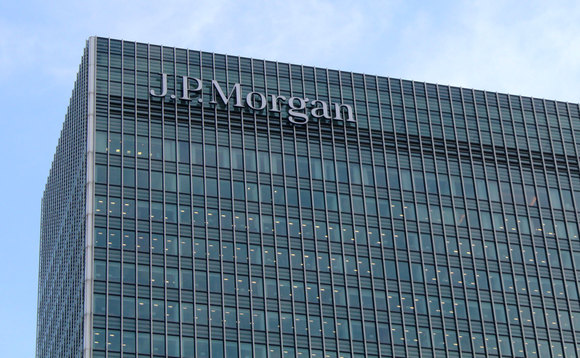
Sympathy for the Dimon
A lack of confidence is hobbling bank stocks – and the implications go beyond valuations

Poor Jamie Dimon. No, wait – hear me out. You have to feel for the guy. A little bit, at least. Over the course of 2015, JP Morgan delivered a 10.3% return on equity (ROE), according to Bloomberg, on the back of a record $24.4 billion in net income. Only UBS and Wells Fargo, among other big European and US banks, managed to post a double-digit ROE.
But as soon as 2016 arrived, the bank's stock started falling. By February 11, it had dropped 19.7% – one of the victims of a sector-wide sell-off that raised concerns about Deutsche Bank's solvency and sparked talk of a new systemic crisis.
There are many ways to explain a falling stock price, of course – particularly for a bank, and particularly during a period of macroeconomic uncertainty. Equity analysts sometimes point at regulation: the new environment, with multiple rules that are still in flight, has "robbed investors of any confidence in these stocks", says one. "I think the volatility has a lot to do with regulatory risk," says another.
At first blush, that feels sort of plausible, but it's worth taking it a bit further. What is it about regulation that might worry investors? It could be that it's harder to forecast future earnings, and without that visibility, valuations will be depressed and share prices more vulnerable to bad news.
Again, if that's the case, you'd need an impossibly cold heart not to feel for Dimon - his bank's ROE has been above 8% for the past six years, and earnings per share have increased steadily since 2008, with a single backward step in 2013. Surely, that deserves a bit more belief? In his letter to shareholders last year, the JP Morgan chief executive said regulatory uncertainty made it "understandable that people would pay less for our earnings than they otherwise might pay."
This isn't just about one bank's cruelly suppressed price/earnings ratio, though. The bigger worry is that fragile stocks, where the upside is capped by a lack of conviction, could end up in a terminal nosedive. Regulators argue this should not be possible - banks are less risky and more robust than at any time in recent history - so the downside should be floored as well. As Keynes had it, though: "Markets can remain irrational longer than you can remain solvent."
Ultimately, all of this probably has more to do with interest rates, inflation and economic growth than it does with the calibration of the leverage ratio, or plans to rein in the use of capital models. But whatever the cause, the lesson is the same: regulators need banks to be both strong and successful, and a world in which they are not receiving recognition for their success – even if only relative success – is a dangerous one.
Only users who have a paid subscription or are part of a corporate subscription are able to print or copy content.
To access these options, along with all other subscription benefits, please contact info@risk.net or view our subscription options here: http://subscriptions.risk.net/subscribe
You are currently unable to print this content. Please contact info@risk.net to find out more.
You are currently unable to copy this content. Please contact info@risk.net to find out more.
Copyright Infopro Digital Limited. All rights reserved.
As outlined in our terms and conditions, https://www.infopro-digital.com/terms-and-conditions/subscriptions/ (point 2.4), printing is limited to a single copy.
If you would like to purchase additional rights please email info@risk.net
Copyright Infopro Digital Limited. All rights reserved.
You may share this content using our article tools. As outlined in our terms and conditions, https://www.infopro-digital.com/terms-and-conditions/subscriptions/ (clause 2.4), an Authorised User may only make one copy of the materials for their own personal use. You must also comply with the restrictions in clause 2.5.
If you would like to purchase additional rights please email info@risk.net
More on Risk management
CROs shoulder climate risk load, but bigger org picture is murky
Dedicated teams vary wildly in size, while ownership is shared among risk, sustainability and the business
ISITC’s Paul Fullam on the ‘anxiety’ over T+1 in Europe
Trade processing chair blames budget constraints, testing and unease over operational risk ahead of settlement move
Climate Risk Benchmarking: explore the data
View interactive charts from Risk.net’s 43-bank study, covering climate governance, physical and transition risks, stress-testing, technology, and regulation
‘The models are not bloody wrong’: a storm in climate risk
Risk.net’s latest benchmarking exercise shows banks confronting decades-long exposures, while grappling with political headwinds, limited resources and data gaps
Cyber insurance premiums dropped unexpectedly in 2025
Competition among carriers drives down premiums, despite increasing frequency and severity of attacks
Op risk data: Kaiser will helm half-billion-dollar payout for faking illness
Also: Loan collusion clobbers South Korean banks; AML fails at Saxo Bank and Santander. Data by ORX News
Market doesn’t share FSB concerns over basis trade
Industry warns tougher haircut regulation could restrict market capacity as debt issuance rises
CGB repo clearing is coming to Hong Kong … but not yet
Market wants at least five years to build infrastructure before regulators consider mandate








